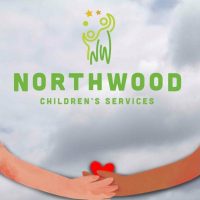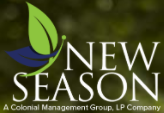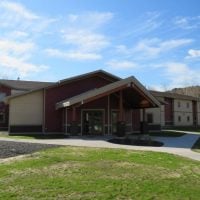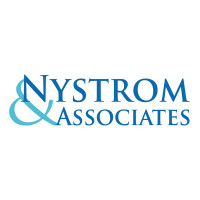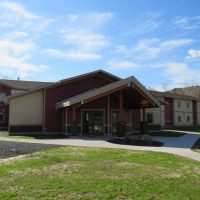Northwood Childrens Services - Little Learners Enrichment
Drug Rehab Center in Duluth, Minnesota
Northwood Childrens Services - Little Learners Enrichment in Duluth, Minnesota offers residential and day treatment services for addiction and substance abuse, using certified and licensed professionals and evidence-based treatment methods, in addition to providing other services such as counseling sessions, medication management, life skills coaching, case management, and aftercare planning.
About Northwood Childrens Services - Little Learners Enrichment in Minnesota
Northwood Childrens Services - Little Learners Enrichment is an Addiction Treatment Facility located in Duluth, Minnesota. Founded in 1883, it has a long-lasting history of providing specialized care for individuals suffering from mental health issues. The facility offers both outpatient and inpatient levels of care to meet the diverse needs of their patients. With a focus on children and young adults, Northwood Childrens Services - Little Learners Enrichment provides a supportive environment where individuals can receive recovery-oriented treatment.
Northwood Childrens Services - Little Learners Enrichment employs a variety of evidence-based treatment methods to address addiction and substance abuse. They emphasize a multidisciplinary approach, combining therapy modalities, counseling sessions, and educational programming to create personalized treatment plans for each patient. The facility strives to help individuals develop essential coping skills, build healthier relationships, and improve overall well-being. With their affiliation with Northwood Childrens Services, they have access to comprehensive resources and expertise in the field of mental health.
Genders
Ages
Modality
Additional
Conditions and Issues Treated
Levels of Care Offered
This center offers a variety of custom treatment tailored to individual recovery. Currently available are Inpatient, Outpatient, with additional therapies available as listed below.
Going to an inpatient rehab facility means living there while all aspects of addiction or co-occurring disorder get addressed. The treatment involves medical supervision, therapy, and future planning.
This type of rehabilitation provides a drug-free environment for people who struggle with chronic/long-term addiction without having access to drugs outside the center (or their own home). It takes away any distractions because they live there 24 hours per day. If someone is trying to break out old habits, which could lead them back into substance abuse, things like jobs or school can be put on hold until after they complete their stay to focus solely on recovery.
Outpatient programs at Northwood Childrens Services - Little Learners Enrichment, the Duluth resident can live with their family while continuing with their job or studies. Treatment includes educating the patient on drug abuse, medications, and counseling sessions at the individual or group level. Outpatient treatment plans cover diagnosis, detoxification, management, and counseling. They are a popular option for those who have graduated from inpatient facilities.
Therapies & Programs
Individual therapy is a form of counseling where you meet with a trained professional one-on-one. Meeting with a therapist in this setting allows for a personal and trusting relationship to be built. This allows the patient to open up about sensitive or private issues they may not feel comfortable discussing in a group. Individual therapy helps identify the root causes of your addiction, which can help prevent relapse.
Couples therapy for drug addiction is a unique form of therapy that allows family members to work through the emotional issues of their loved one’s addiction together. Family members can support each other while learning how to cope with the addiction and encourage healthy changes. The two will work with a therapist to learn how the addiction affects themselves and the relationship.
Family therapy is often done alongside drug treatment to help addicts stay sober. The goal of family therapy for drug addiction is to create an environment where communication can happen without judgment, hostility, or blame. The therapist will sit with the family so they can learn how to communicate differently and provide new tools for dealing with emotions so that people don’t want to drink or do drugs. It’s important for families to focus on relapse prevention plans during treatment so that if the addict feels like they want to use again, they’ll know what steps they need to take together to prevent it from happening again in the future.
Group therapy sessions are another common addiction recovery service. These group sessions typically involve six to 12 addicts who meet regularly with a trained professional for support and guidance.
During these sessions, the group shares their experiences with one another and provides feedback that can help each member avoid relapse or overcome specific obstacles they are facing in their recovery process. With this type of support and guidance, addicts can feel like they are part of a community that understands their struggles and will help them get through the hard times.
Many people struggling with drug addiction have experienced some form of trauma in their lives. It is crucial that these individuals seek out professional help; otherwise, their drug abuse and addiction will likely continue.
Therapists and counselors at drug treatment centers employ several treatment programs to help people struggling with drug addiction, including trauma therapy. Trauma therapy helps people dealing with addiction by allowing them to confront the traumas of their past and move past them.
It is important to note that trauma therapy should not be confused with PTSD (post-traumatic stress disorder). Rather, it is used to treat the effects of trauma, which are often at the root of addiction.
Dialectical Behavior Therapy was developed in the 1980s to treat chronically suicidal individuals. It is a cognitive-behavioral therapy that combines standard DBT with strategies derived from Zen Buddhism, such as mindfulness training.
DBT has been adapted for use with other types of psychiatric problems, including eating disorders, substance abuse disorders, borderline personality disorder, posttraumatic stress disorder (PTSD), and other personality disorders. Dialectical Behavior Therapy is considered a psychosocial treatment of BPD. This means that while it can be used alone or in conjunction with drug treatments, DBT does not rely on medications to treat the disorder. Instead, DBT aims to help patients change their thinking and behavior.
Cognitive Behavioral Therapy (CBT) focuses on the underlying thoughts and behaviors that caused the problem of addiction in the first place and may cause a relapse. Negative feelings are common in drug abuse disorders, but they can lead to co-occurring disorders if not recognized. CBT involves strategies that help to change the behavior pattern by restructuring negative thoughts into positive ones. It helps to remove these feelings, and it provides long-term benefits. Also, CBT promotes self-awareness and self-control. It can be administered as a monotherapy or as part of combination therapy.
CBT can improve the patient’s mood, reduce drug cravings and boost success rates on treatment plans. Regular practice can help individuals handle negative attitudes, thoughts, and feelings without turning to drugs or alcohol. The core belief of Cognitive Behavioral Therapy (CBT) is that one’s moods, behaviors, and actions are all connected. Individuals can improve their quality of life using CBT. It helps addicts understand the patterns of thought and feelings that cause them to use drugs or alcohol and develop a healthy response.
Patient Experience
Experiential Therapy at Northwood Childrens Services - Little Learners Enrichment
Drug addiction causes the formation of abnormal connections between neurons in the brain to form due to repeated exposure to drugs. These connections are responsible for addictive behaviors to drugs. Experiential therapy is done with patients individually and is different from traditional talk therapy. This therapy can help people revisit past traumas, heal, and move on in life in a more authentic way.
Experiential therapy uses activities to recreate experiences that may have caused trauma or negative emotions. These activities include role-playing, arts and crafts, animal care, music, or rock climbing. The individual will gradually experience calmness and love and change their perception positively through this therapy. Other than drug addiction, experiential therapy can be helpful for behavioral or eating disorders.
Payment Options Accepted
For specific insurance or payment methods please contact us.
Is your insurance accepted?
Ask an expert, call (888) 674-0062
Northwood Childrens Services Associated Centers
Discover treatment facilities under the same provider.
- Northwood Childrens Services - Day Treatment in Duluth, MN
- Northwood Childrens Services - Main Campus in Duluth, MN
Learn More About Northwood Childrens Services Centers
Additional Details
Specifics, location, and helpful extra information.
Duluth, Minnesota 55811 Phone Number(218) 724-8815 Meta DetailsUpdated November 25, 2023
Staff Verified
Northwood Childrens Services - Little Learners Enrichment Patient Reviews
There are no reviews yet. Be the first one to write one.
Duluth, Minnesota Addiction Information
Minnesota is fighting an opioid epidemic that is leaving hundreds of its residents dead each year. Both prescription opioids and illicit opioids are widely abused in the Land of 10,000 Lakes. Heroin continues to be one of the most commonly abused drugs in the state, if not the most common illicit drug. Over 10% of all treatment admissions in Minnesota list heroin as their drug of choice.
Duluth has a high rate of drug overdoses, with a total of 46 in 2016. In 2016, there were 708 admissions to drug and alcohol treatment centers in Duluth. The most common drugs of abuse are marijuana (39%), methamphetamine (27%), cocaine (19%), and heroin (5%). Drug treatment in Duluth can vary depending on the person's needs and preferences. Some rehab centers also offer holistic treatments, such as yoga and meditation.
Treatment in Nearby Cities
- Sartell, MN (130.5 mi.)
- Redlake, MN (155.4 mi.)
- Ponsford, MN (155.9 mi.)
- Anoka, MN (127.9 mi.)
- Worthington, MN (279.0 mi.)
Centers near Northwood Childrens Services - Little Learners Enrichment
The facility name, logo and brand are the property and registered trademarks of Northwood Childrens Services - Little Learners Enrichment, and are being used for identification and informational purposes only. Use of these names, logos and brands shall not imply endorsement. RehabNow.org is not affiliated with or sponsored by Northwood Childrens Services - Little Learners Enrichment.
